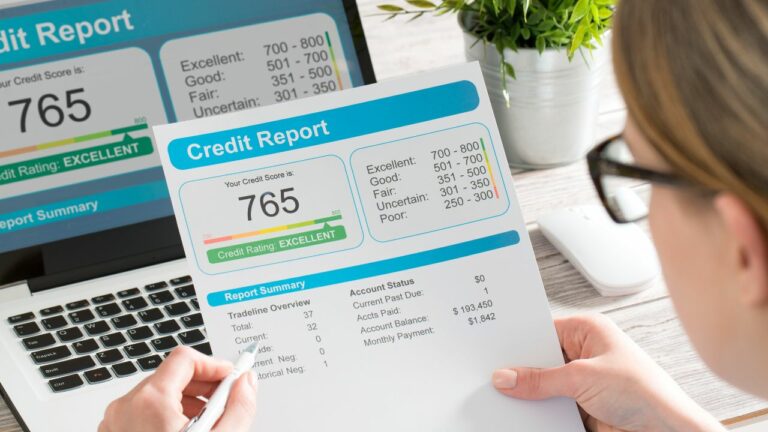Can Joint Mortgage Be Transferred To One?
A joint mortgage is a common arrangement where two or more individuals share ownership of a property and are jointly responsible for the mortgage repayments.
However, circumstances may arise where one party wishes to take sole ownership of the property and assume responsibility for the mortgage. So, can joint mortgage be transferred to one?
In this guide, we’ll explore the process of transferring a joint mortgage to one person in the UK, including the legal, financial, and practical considerations involved.
What is a Joint Mortgage?
A joint mortgage is a loan taken out by two or more individuals to purchase a property together. Each party named on the mortgage agreement shares ownership of the property and is jointly responsible for repaying the mortgage debt.
Joint mortgages are commonly used by couples, family members, or friends to buy a home together, pooling their financial resources to secure a mortgage loan.
This can make it easier to qualify for a larger loan or more desirable interest rates, as the combined income and credit scores of all parties are taken into account by lenders.
Can Joint Mortgage Be Transferred To One?
Yes, it is possible to transfer a joint mortgage to one person in the UK. This process is known as ‘transferring equity’.
However, it’s important to note that transferring equity is not the same as refinancing. Refinancing involves taking out a new mortgage loan to replace the existing one while transferring equity simply changes the ownership structure of an existing mortgage.
Reasons for Transferring a Joint Mortgage to One Person
There are several reasons why one party may wish to assume sole ownership of a property and take over the mortgage. These include:
- Relationship breakdown: In the event of a divorce, separation, or dissolution of a civil partnership, one party may need to transfer the joint mortgage into their name.
- Change in financial circumstances: If one party experiences a significant increase or decrease in income, they may need to take over the mortgage to reflect their new financial situation.
- Estate planning: Transferring a joint mortgage to one person may be part of estate planning strategies, particularly in cases involving inheritance or passing the property to heirs.
- Property ownership disputes: If one party believes they are entitled to sole ownership of the property, they may need to transfer the joint mortgage into their name.
- Change in circumstances: Changes in circumstances, such as job relocation or retirement, may prompt individuals to transfer a joint mortgage to one person to better align with their current needs and goals.
- Buying with friends: In cases where friends purchase property together, one party may eventually want to buy out the other’s share and take over the mortgage.
What Happens if One Person Stops Paying?
In a joint mortgage, each borrower is jointly and severally liable for the full mortgage debt. This means that if one person stops paying their share of the mortgage, the other borrower(s) are still responsible for making the full repayments. Failure to keep up with mortgage payments can have serious consequences, including:
- Damage to Credit Score: Missed payments can negatively impact the credit scores of all borrowers, making it harder to access credit in the future.
- Risk of Repossession: If mortgage payments are consistently missed, the lender may initiate repossession proceedings to recover the debt, potentially leading to the forced sale of the property.
Communicating openly and honestly with co-borrowers is essential if meeting mortgage repayments is difficult. Seeking professional advice from a financial advisor or mortgage broker can help explore options for managing financial difficulties and avoiding potential repercussions.
Process for Transferring a Joint Mortgage in the UK

The process for transferring a joint mortgage to one person will depend on individual circumstances and the agreement of all parties involved. However, here are some general steps that may be followed:
- Check with the lender: The first step is to check with the mortgage lender if transferring a joint mortgage to one person is possible. They will need to assess the creditworthiness of the remaining party and determine if they can afford to take on the mortgage on their own.
- Seek legal advice: It is advisable to seek legal advice from a solicitor specialising in property law. They can guide the transfer process and ensure all necessary documents are properly drafted and executed.
- Agree on ownership and equity distribution: The remaining party must agree with the other party on how they will take over the mortgage and their respective ownership rights. This includes how much equity each party is entitled to based on the original agreement.
- Obtain a transfer of equity form: The lender may require a Transfer of Equity form to be completed, which outlines the transfer of ownership from joint to sole ownership. This form will also need to be signed by all parties involved.
- Valuation of the property: The lender may require a valuation of the property to determine its current market value, which will affect the mortgage amount and eligibility of the remaining party.
- Pay any necessary fees: There may be fees associated with transferring a joint mortgage, such as legal, valuation, and arrangement fees.
- Apply for a new mortgage: The remaining party must apply for a new mortgage in their name once all the necessary steps have been completed. This may require meeting certain eligibility criteria and providing proof of income and creditworthiness.
Potential Challenges and Considerations
There are several potential challenges and considerations to be aware of when transferring a joint mortgage to one person:
Financial Affordability
The individual assuming sole responsibility for the mortgage must be able to afford the repayments independently, which may be challenging if their financial circumstances have changed since the original mortgage was taken out.
Tax Implications
Transferring ownership of the property may have tax implications, such as stamp duty land tax (SDLT) or capital gains tax (CGT), depending on the circumstances of the transfer.
Legal Fees
There may be legal fees associated with transferring ownership of the property and mortgage, including conveyancing fees and Land Registry fees.
Impact on Credit Rating
Transferring a joint mortgage to one person may impact the credit rating of both parties involved, particularly if the individual taking over the mortgage has a lower credit score. This could make it more difficult for them to secure a new mortgage or other forms of credit in the future.
How Do You Buy Someone Out?

If you are considering buying someone out of a joint mortgage, several general steps are involved.
First, all parties need to agree on the terms of the buyout, including the distribution of payments. Next, a professional property valuation is necessary to determine the property’s current market value.
It’s important to consider any existing debts or mortgages on the property when calculating the buyout amount. The buyer will then need to arrange financing to cover the buyout.
Once financial arrangements are in place, the transfer of ownership can proceed with legal documents. Updating credit records is essential post-buyout to reflect the new ownership status.
Additionally, it’s crucial to evaluate any tax implications with a financial advisor or tax professional. Lastly, ensuring continued mortgage payments is vital for the new owner if a new mortgage is involved. Continue making timely mortgage payments to avoid any negative impact on their credit score.
Frequently Asked Questions
1. Do I need a property valuation for a buyout?
Obtaining a professional property valuation when considering a buyout is highly recommended. This will help determine the property’s current market value and ensure a fair distribution of payments.
2. Do I need to change lender?
In most cases, it is not necessary to change lenders when completing a buyout. However, the new owner may choose to refinance the mortgage in their name for better terms or interest rates.
3. Can I negotiate the terms of a buyout?
Yes, it is possible to negotiate the terms of a buyout with all parties involved. It is important to have clear and open communication to ensure a fair and mutually beneficial agreement.
4. How long does a buyout process take?
The timeline for a buyout process can vary depending on factors such as the cooperation of all parties involved, legal requirements, and financing arrangements. It is recommended to consult with professionals for an estimated timeline in each individual case.
5. Will a buyout affect my credit score?
If all parties involved make timely mortgage payments, a buyout should not negatively impact anyone’s credit score. However, if one party fails to make payments, it can affect all parties’ credit scores. It is important to continue making timely mortgage payments to avoid negative impacts.
6. What happens if one party wants to back out of the buyout?
If one party decides not to proceed with the buyout, it could delay or prevent the process from being completed. It is important to have a clear and legally binding agreement in place before beginning the buyout process to avoid potential issues.








